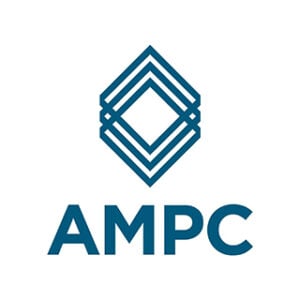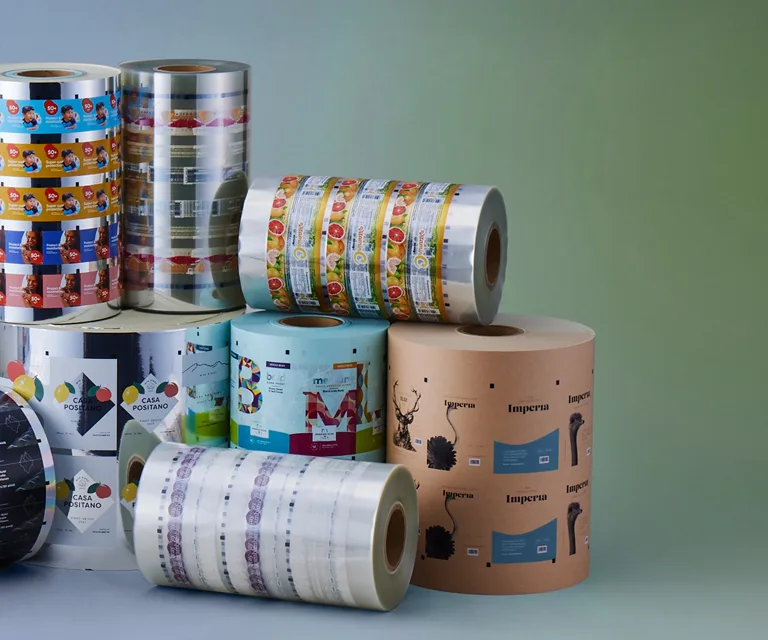Customer Success Story: The Australian Meat Processor Corporation (AMPC)
The Australian Meat Processor Corporation (AMPC) is the research and development corporation for the red meat processing industry in Australia. As the research, development, and marketing service provider for Australian processors, AMPC runs programs of activity that are funded by processor levy payers, private contributions, and the Australian government. AMPC’s mission is to drive world-class innovation, adoption, and strategic policy development through genuine partnerships built on trust.
Summary
“The capability of the Markforged 3D printer, supplied through AMPC and provided by Konica Minolta, was very impressive. It is easy to use, and everything comes out of the printer perfectly, saving not only time but money in terms of having little to no downtime when parts needed to be replaced. Traditionally, when something failed, such as the tannery gear, we would need to have the part manufactured externally from scratch, which could take weeks and cost thousands in missed profit from halting processing. The 3D printer is remarkable and the possibilities for its use are endless.”
Brian Armstrong, Drafts Person and Project Support Officer, The Casino Food Co-op
The Challenge
- Hinges on hundreds of label printers that needed replacing were discontinued
- Tannery gear on tannery drum broke disrupting leather processing
- Fan blade for one of the 100 evaporators broke down
In a high-volume environment like a processing plant, parts such as bolts and rollers can wear or break. As in any industry, time is money and, if a part fails, the result is lost productivity and expensive downtime until the part is sourced and replaced.
Chris Taylor, CEO, Australian Meat Processor Corporation, said, “Meat processors rely on a multitude of equipment, each with multiple components. Even a small component failure can be costly. The ability to simply print a replacement part could drastically reduce downtime and minimise the need to wait for parts, reducing the chance of supply being at risk.”
The Solution
- Markforged X7 3D printer deployed by Konica Minolta
AMPC collaborated with Konica Minolta and Markforged in a world-first trial of a 3D printing service model. The trial aimed to help red meat processors across Australia benefit from printing equipment parts and revolutionising equipment maintenance to help ensure continuous supply of meat products. The collaboration involves a three-year, multifaceted program so that these benefits can be realised at meat processing plants across Australia.
The program involves two mobile non-metal Markforged X7 carbon fibre industrial 3D printers being shipped to Australian processing plants. Processing staff are trained to use the printers so they can assess whether buying a permanent unit would be a good investment. The units remain onsite for up to eight weeks before rotating to another plant. These units can create premetal prototypes for assessment as well as produce non-metal parts for end use. Konica Minolta provides onsite support to help meat processors understand and leverage the technology.
As part of this program, The Casino Food Co-op was identified as a facility that may benefit from some of the applications 3D printing had to offer and received the Markforged X7 3D printer to trial. Since 1933, The Casino Food Co-op has been Australia’s largest farmer-owned, world-class meat processing co-operative. It has established itself as an industry leader in paddock-to-plate meat processing using state-of-the-art facilities. Located in Casino, in the Northern Rivers region of New South Wales, the company processes 1,200 head of cattle per day and employs more than 1,000 people from the surrounding area.
There were three areas that needed to be addressed within the Casino Food Co-op facility. The first was the hinges on the hundreds of label printers used to produce thousands of labels a day at the processing plant.
Brian Armstrong, draftsperson and project support officer, The Casino Food Co-op, said, “The plastic hinge deforms and breaks after many years of use. With the part discontinued by the manufacturer, the only option would have been to replace all of the label machines, which would have been extremely costly.”
The next area was the leather tannery drum, which removes hair and fat before the leather is dyed. A gear in the tannery failed, which resulted in leather production stopping until the replacement part could be manufactured.
Brian Armstrong said, “The impact of stalled production was significant, with tens of thousands of dollars of product output on the tannery a day.”
The final area was the fan blades on the evaporators that optimise the temperature in the cooling rooms. If one blade becomes unstable, the whole evaporator breaks apart and the cool room can’t perform at optimal levels. With the original equipment manufacturer for the evaporators no longer in operation, the cost of manufacturing new blades was significant.
Brian Armstrong said, “Without all cool rooms at full use, The Casino Food Co-op was also potentially at risk of not being able to deliver product at full capacity, which would impact our commitment to our partners.”
Customer Benefits
- End-use 3D printed parts are more cost effective and faster to produce.
- Temporary parts allowed processing to continue while new parts were ordered from the manufacturer.
- Flexibility and in-house capabilities removed the need to work with expensive third parties for some parts.
- Increased control and productivity to ensure customer KPIs were met.
With the 3D printing solution from AMPC, Konica Minolta, and Markforged, The Casino Food Co-op was able to solve these challenges with relative ease and prevent costly downtime across the operation.
Brian Armstrong said, “Although these solutions target very specific areas of the business, they have been highly beneficial to the entire process, helping the back end, output, and packaging.
With the ability to 3D-print new hinges for the label printers as required, The Casino Food Co-op can now prevent downtime on the machines and ensure that labels can continue to be printed. In addition, the longevity of the label printers has been extended, saving thousands of dollars in replacement costs.
3D-printing the tannery gear meant that, while the business waited for a new gear to be manufactured, a temporary replacement could be fitted to keep the machine running. This meant that processing could continue as usual, avoiding the significant losses of unplanned downtime which would have occurred without the 3D printing capability.
Brian Armstrong said, “The Casino Food Co-op produces tens of thousands of dollars of product on the tannery each day. The two gears required to keep the machine operational were printed and fitted within 18 hours so there was no loss in productivity.”
Being able to 3D-print a fan blade for the cool room evaporators also delivered significant cost savings and risk mitigation for the business. Previously, the co-op would need to commission a steel manufacturer to make a replacement blade at a cost of up to $10,000 per blade. Meanwhile, meat would need to be moved to where the cooling was working as it should. Now, 3D printing a replacement blade takes just days and costs a fraction of the price, providing significant benefit to the business.
Brian Armstrong said, “Finding a solution for these challenges was essential. All of the applications we have used the 3D printer for are pivotal to The Casino Food Co-op for equipment maintenance and operation, helping us prevent unplanned downtime and meet our supply contracts.”
We couldn’t have achieved this without the support from Konica Minolta and the Markforged X7. The knowledge of the Konica Minolta team meant we had a lot of support along the way in creating solutions that met our needs. The possibilities for 3D printing in meat processing are endless and we look forward to seeing how we can continue to transform with 3D printing into the future.
– Brian Armstrong, Drafts Person and Project Support Officer, The Casino Food Co-op






